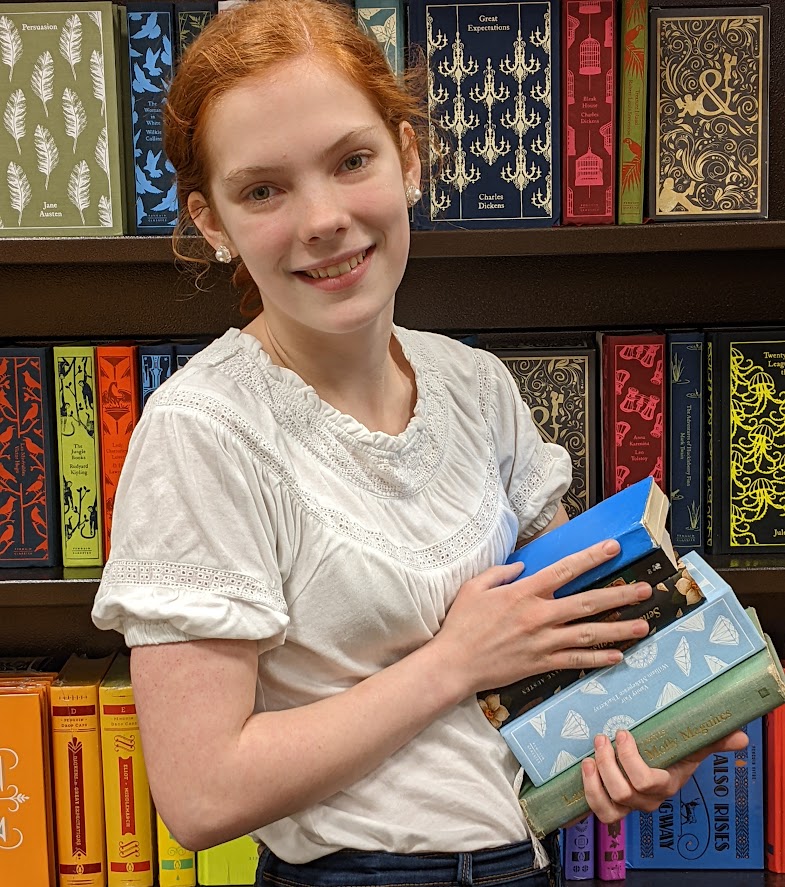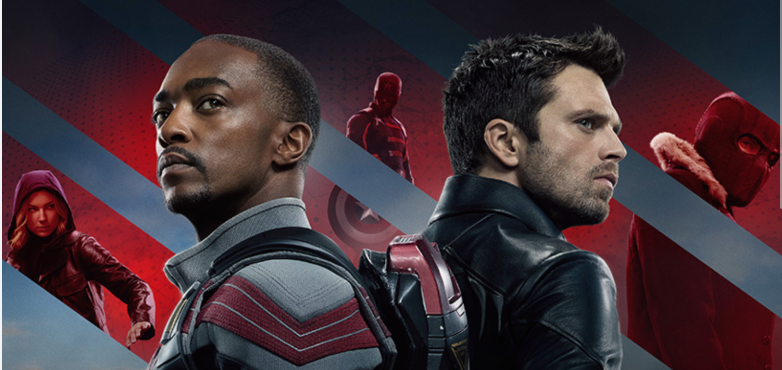There were certain aspects of good storytelling that Disney+’s Falcon and the Winter Soldier did well. The villain, Karli, is sympathetic yet also evil. Karli is confused, hurt, and willing to hurt others if it will supposedly make things right. The series resolved several open threads from both protagonists’ character arcs, including Bucky’s struggle over wrongs he committed in the past and Falcon’s desire to live up to Captain America’s legacy. The show also wrestled with some themes that are not only difficult but also very prevalent in our culture today. One of the main characters was told repeatedly to hold bitterness against a racial group because of past wrongs, and yet in an encouraging final speech, he holds to the basic idea that all men are created equal and encourages the world to take each person on their individual merit, rather than their skin color, culture, or bloodline.
When the show ended, it was satisfying. The final speech certainly wrapped up some of the most concerning aspects of the theme and completed both main character’s arcs well.
However, on second thought, the speech that Falcon gave solved few of the problems that he and Winter Soldier had set out to resolve. In fact, the entirety of the speech could be summed up with his words “Do better, Senator. Do better.” This sounds great coming from an Avenger. However, it ultimately resolves none of the negative impacts of Endgame, which is exactly what our protagonists had been working to solve from the very first episode.
Falcon and the Winter Soldier
Avengers: Infinity War ends disastrously. Thanos wins, and succeeds in his master plan to “blip” exactly half of the population out of existence, granting the remaining half all of the wealth and resources they could ever desire. The homeless and the poor quickly seize the belongings of those who had been “blipped” and few see reason to stop them. But when an unlikely rat sparks a chain of events that spurs our heroes on to travel back and time and stop the “blip” before it ever happens, things get a little more complicated.
By the end of Avengers: Endgame, the world is back to normal — or so it seems. It is true that the missing half of the population has returned to their loved ones. But many of them struggle to repossess the homes, property, and possessions that others took during the five years of “blip”. As various governments struggle to resolve the issues between those who originally owned the property and those who currently possess them, a group arises with a fearless young leader. Calling themselves the “Flag Smashers,” they are made from the unfortunate who were blessed by the results of the “blip” and are now less fortunate because of the events of Endgame.
Their leader, Karli, is sympathetic yet ruthless. As she challenges the protagonists again and again, it becomes obvious that a new solution must be reached. Ignoring either side will not resolve the tensions that have finally exploded in our hero’s faces. At this point, neglecting either side will end disastrously.
During the climax, Karli is tragically killed, and Falcon finally sees that her side deserves some attention and that the government is severely mistreating them by ignoring them all together. So he gets up and makes his speech to cameras broadcasting his message all around the world. He boldly confronts the world leaders, with compassion for the Flag Smashers and a path for how to move forward: “Do better.”
All in all, the speech is very inspiring.
Yet it lacks the conclusion required to resolve the issues of the time.
For all we know, in a few weeks the Flag Smashers will have a new leader and an even bolder plan, and our protagonists will be back to just where they started — trying to keep the Flag Smashers and their allies from committing terrorism all around the world. Neither protagonist offers a better way to handle the situation, and their simplistic view of the power that senators and those in government hold severely hampers the effect and practicality of their already ambiguous message. They assume that those in power can snap their fingers and solve the issues of the day, without giving a realistic solution that can be effectively executed.
There may be no better solution. It’s possible that the characters did everything they could to solve the problems of the time. The main issue with this idea is not the character’s failure to solve every problem. Instead, the issue seems to be the writer’s lack of foresight when it comes to creating moral dilemmas.
In reality, there are many issues where both sides are sympathetic and no compromise is going to fully satisfy both ends of the discussion. But there are very few issues where there are no answers. The answer might be messy and broken and sometimes seem so hard that your characters will question whether they’ve made the right decision after all, but there will be some answer.
The type of answer-less dilemmas tend to only take place in fantasy or sci-fi settings with new dynamics that have never been explored before. Seeing as Marvel is a combination of both fantasy and sci-fi, it was bound to happen at some point.
But all stories, including those which are sci-fi and fantasy, are meant to mirror our own world. Creating a premise that offers no moral solution breaks your readers’ suspension of disbelief. We can believe in a world where the physically and mentally impossible are reality, but when it comes to moral impossibilities, something doesn’t sit right.
Now, if your goal is only to explore an interesting situation and allow your characters to wrestle with a unique problem, then you would have succeeded. Many stories do this. The writers of Star Trek almost seem to enjoy putting their characters into these sort of “answerless” moral dilemmas almost every other episode. For example, in one episode a transporter malfunction causes two crewmembers to combine into a completely new individual with his own opinions, tastes, and relationships. The captain has to decide whether or not reversing the malfunction is moral, even as the unique individual is begging not to be erased from reality. Similarly, the very premise of the Story Thieves series is so morally ambiguous that there really is no satisfying resolution available. When fictional characters come to life and break into our world, their leader declares that he is going to trap all of humanity into books so that the fictional characters can dictate their writers’ lives. Our protagonists have to decide if their freedom is worth more than the new lives they accidentally brought to sentience by introducing to our world.
On the other hand, if you want to leave your readers with a satisfying ending, then you are going to have to present a world with ethical problems that have a moral, albeit less than ideal, solution.
By all means, explore the new and complex problems that your fantasy world introduces. Let your characters struggle through difficulties that those of us in average, usual worlds don’t have to deal with. But provide a solution to those problems — a clear answer to the question that your story is asking. Let the solution be messy and problematic, but let it be right.



What stories have you read without real resolutions to moral dilemmas? Do you find yourself writing “answerless” dilemmas into your stories on accident (like I do!)? And how was the article? Too sweet? Too sour? Just right? Comment below and let us know!


Hi! My name is Mara, and I’m a Christian artist, violinist, and blogger. I remember the day that I decided that I would learn something new about what makes a good story from every book I picked up — whether it was good, bad, or a mixture of both. I use this blog as a way of sharing some of the tips and tricks I’ve learned, and highlight which books, cartoons, and movies have taught me the most about writing an awesome story.

